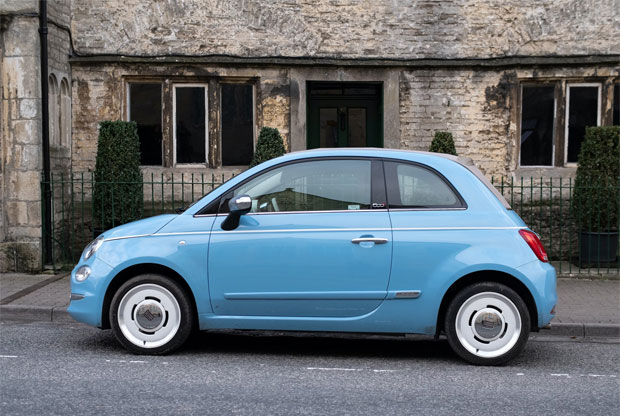Saving Money On Your Car: A Step-By- Step Guide

Saving Money On Your Car: A Step-By- Step Guide
In car ownership, the dual spectres of theft and unforeseen expenses loom large. This comprehensive guide aims to alleviate these concerns, offering practical steps to not only save money on your car but also enhance its security. We’ll begin our journey with a focus on GPS trackers and progressively delve into budgeting strategies, proactive maintenance, insurance optimisation, and fuel efficiency practices.
- Safeguard Your Investment With GPS Trackers
Kicking off our guide is a pivotal aspect of car security: GPS trackers. These devices utilise advanced satellite technology to provide real-time tracking of your vehicle. Beyond the peace of mind they afford, the mere presence of a visible GPS tracker from Rewire Security can act as a potent deterrent to potential thieves. What’s more, many insurance providers recognise the efficacy of such anti-theft devices and offer premium discounts, making this a savvy investment for both security and financial prudence.
- Budgeting Smarts For Your Ride
Transitioning from security to finance, the cornerstone of any money-saving endeavour is a well-structured budget. Start by assessing your monthly income and earmarking a dedicated portion for your vehicle-related expenses. This encompassing approach should include not only routine costs like fuel and insurance but also provisions for regular maintenance and an emergency fund for unforeseen repairs. Establishing a separate savings account exclusively for your car expenses aids in meticulous tracking and provides a financial buffer for unexpected hiccups in your vehicle’s well-being.
- Proactive Maintenance Pays Off
A crucial aspect of saving money on your car lies in pre-emptive measures, particularly in maintenance. Regular servicing is not merely a chore; it’s an investment in your vehicle’s longevity and financial well-being. Following the manufacturer’s recommendations, consistent check-ups, timely oil changes, and routine tire rotations can identify and address potential issues before they burgeon into costly problems. The adage “prevention is better than cure” rings true in car ownership.

- Insurance That Fits Your Pocket And Needs
Turning our attention to the often-daunting realm of insurance, a strategic approach can yield significant savings. Begin by comparing plans from different providers to strike a balance between coverage and cost. Adjusting your deductible—a monetary threshold before your insurance kicks in—can influence your premium, offering flexibility in tailoring your insurance to your financial comfort zone. Moreover, inquire about potential discounts, whether they stem from a history of safe driving, policy bundling, or installing safety features in your vehicle.
- Pump Up Fuel Efficiency
Fuel costs constitute a substantial chunk of car ownership expenses, making the quest for fuel efficiency a paramount concern. Beyond regular maintenance, which contributes to optimal fuel consumption, cultivating fuel-efficient driving habits can go a long way. Smooth acceleration, steady speeds, and avoiding aggressive braking are habits that enhance fuel efficiency and contribute to a gentler impact on your vehicle, potentially reducing long-term maintenance costs. Exploring alternative commuting options, carpooling, and staying vigilant about fuel prices in your vicinity are additional strategies to keep your fuel expenses in check.
- Shop Around For Better Fuel Prices
Shopping around for better fuel prices is a savvy way to cut down on transportation costs. With fluctuating gas prices, a simple search on apps or websites can reveal the most affordable options in your vicinity. Loyalty programs from gas stations also offer additional savings. You can substantially reduce your overall fuel expenses by consistently monitoring and choosing the most economical fuel sources. This proactive approach saves money and contributes to more efficient budget management, enabling you to allocate resources to other essential areas of your finances. It’s a small effort that can lead to significant long-term savings.

- Avoiding Fines
Minimising fines is a key strategy for saving money on car-related expenses. Adhering to traffic laws, speed limits, and parking regulations can prevent costly tickets. Stay informed about local regulations to avoid violations. Utilise navigation apps with real-time traffic information to navigate efficiently, reducing the likelihood of unintentional infractions. Regular vehicle maintenance, such as ensuring all lights are operational, can prevent fines. Additionally, addressing any outstanding fines promptly can prevent them from escalating. By adopting a vigilant and law-abiding approach to driving, you enhance safety and safeguard your finances by avoiding unnecessary penalties and fines.
- Parking
Trimming parking costs is a practical way to save money on car-related expenditures. Seek out free or low-cost parking options, such as street parking or designated areas with reduced rates. Consider long-term parking solutions if you won’t frequently need access to your vehicle. Explore mobile apps that provide real-time information on parking availability and rates. Carpooling or ride-sharing can also cut expenses by splitting parking fees. When parking in paid lots, opt for spots farther from popular destinations where rates might be lower. By strategically choosing parking options and being mindful of costs, you can effectively minimise this often-overlooked aspect of car-related expenses.
| Guest Article.





